Is Canon Rebel T7i A Good Camera
Best DSLR camera 2022: our top choices for photography and video
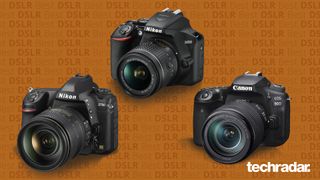
The best DSLRs are still powerful photographic tools with unique features, even in this new historic period of mirrorless cameras. New models are increasingly rare, only both archetype models and recent releases have plenty to offer all types of photographer. Whether y'all're looking for an affordable first camera, a feature-packed upgrade, or a high-terminate model with pro performance, this guide will aid you find your ideal DSLR. (Looking for the best beginner DSLRs ? Check out our separate guide on those).
Which is the best DSLR camera you lot can buy correct now? We've tested all of the top options on the market, and our electric current favorite is the Nikon D3500. A brilliant DSLR camera for beginners, it features a terrific 24MP sensor and attainable controls, at a very affordable toll tag.
That said, the D3500 will exist as well basic for experienced photographers. For a more powerful DSLR camera, we suggest looking at the Canon EOS 90D. With a high pixel count and the ability to shoot uncropped 4K footage, information technology's a powerful all-rounder that's great for stills and video. Flare-up shooting is solid at 10fps, while a 1300-shot bombardment life trumps many mirrorless rivals. If you want versatility in a DSLR body, this is a strong contender.
More familiar with Nikon cameras? The D7500 is older than the EOS 90D, but notwithstanding delivers splendid results and reliable 4K footage from its xx.9MP APS-C sensor, which it borrows from the pricier D500.
If yous're working with a bigger a budget, the Nikon D780 should make your shortlist. A hybrid of a total-frame DSLR and a mirrorless photographic camera, it combines a large grade factor with mod features, including a tilting touchscreen, fast live-view focusing and 4K video with Face and Eye detection.
Whatsoever type of DSLR you're looking for, our in-depth guide below volition help you find it. Our listing features the latest releases, the all-time entry-level options, plus a few older models which proceed to represent great value, all based on our rigorous testing from the past decade.
From long battery life to accessible handling, DSLR cameras still have many benefits in 2022. Not certain how to select from the summit options? Scroll to the bottom of our guide for useful pointers on what sets the DSLR format autonomously – and the cardinal things to consider when choosing the correct model for yous.

The best DSLR cameras in 2022:
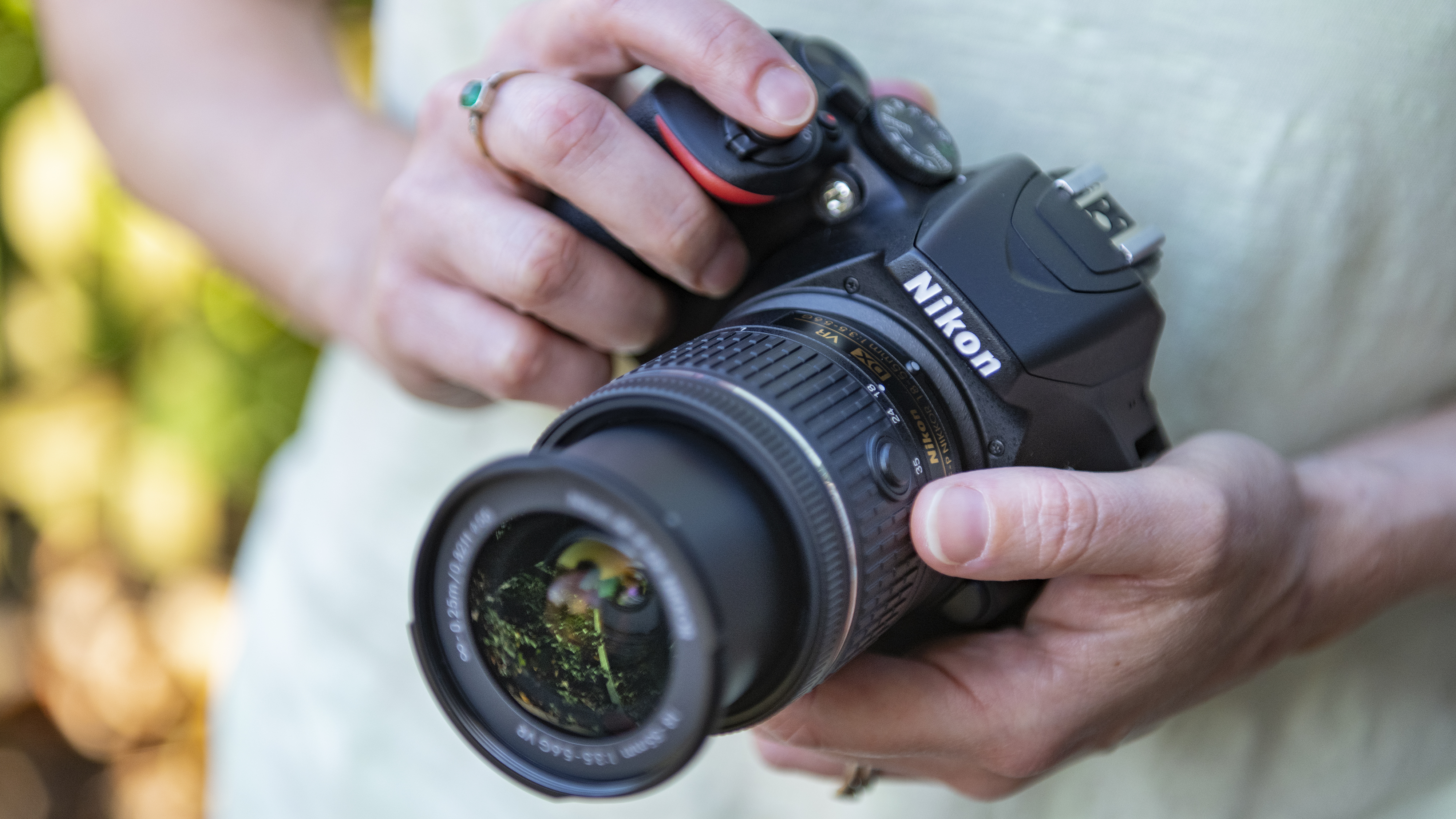
While experienced photographers should look further down this listing for their DSLR friction match, the Nikon D3500 is the ideal choice for beginners who are looking to sharpen their photographic skills. Despite its age, the D3500 still has ane of the finest APS-C sensors out there, and also comes with a neat retracting kit lens. Talking of this lens, it'south worth spending the extra $xx/£20 and to get the 'VR' version (Vibration Reduction), as this is Nikon's prototype stabilization arrangement.
The D3500 is proof that yous don't take to pay a fortune to go a great camera. Its controls are designed to be simple for novices, and in the right easily information technology's a match for cameras that cost a lot more. If you're looking to explore manual controls and do good from a sensor that's far superior to whatever yous'll find in a photographic camera telephone, the Nikon D3500 is certainly hard to beat.
- Read our in-depth Nikon D3500 review

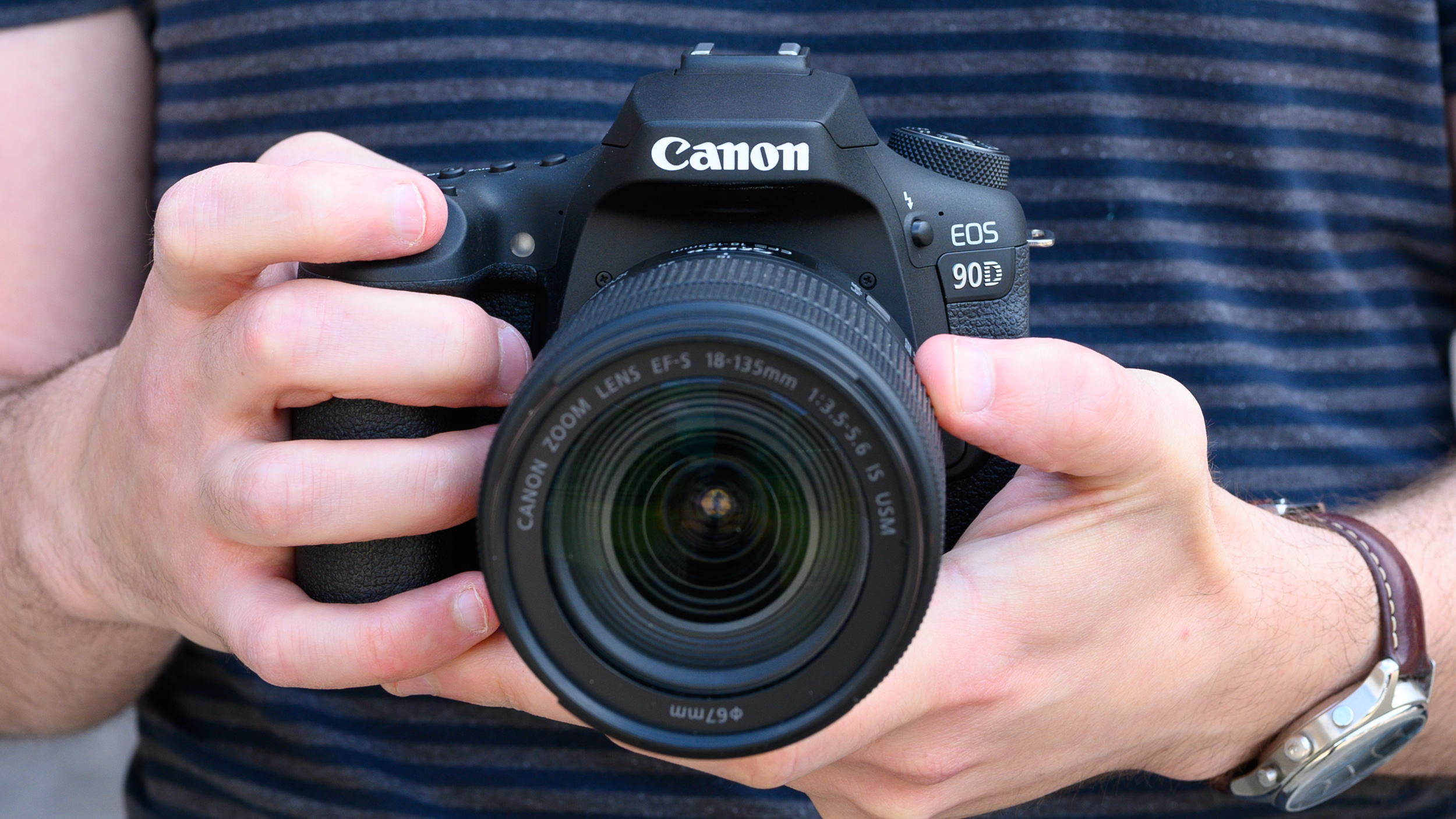
The EOS 90D is quite the step forwards for the EOS DSLR line. It's the first model of its kind to sport a 32.5MP APS-C sensor, which is a generous amount of resolution for both cropping and making large prints. Unlike the earlier 80D, it also has uncropped 4K video recording, while a new processing engine and faster flare-up shooting are also highlights. The 1300-shot battery provides far more juice than y'all'll get from the average mirrorless camera, while protection against dust and water is likewise a bonus.
Information technology'due south worth weighing up whether the benefits of a mirrorless culling to the EOS 90D, similar the Catechism EOS M6 Mark II, might appeal to you. The M6 Mark Two is smaller, cheaper and offers faster burst shooting. But past focusing on primal areas like battery life, handling and a fully articulating rear screen, Canon has made the EOS 90D a strong and versatile alternative for anyone who prefers the DSLR shooting experience.
- Read our in-depth Canon EOS 90D review

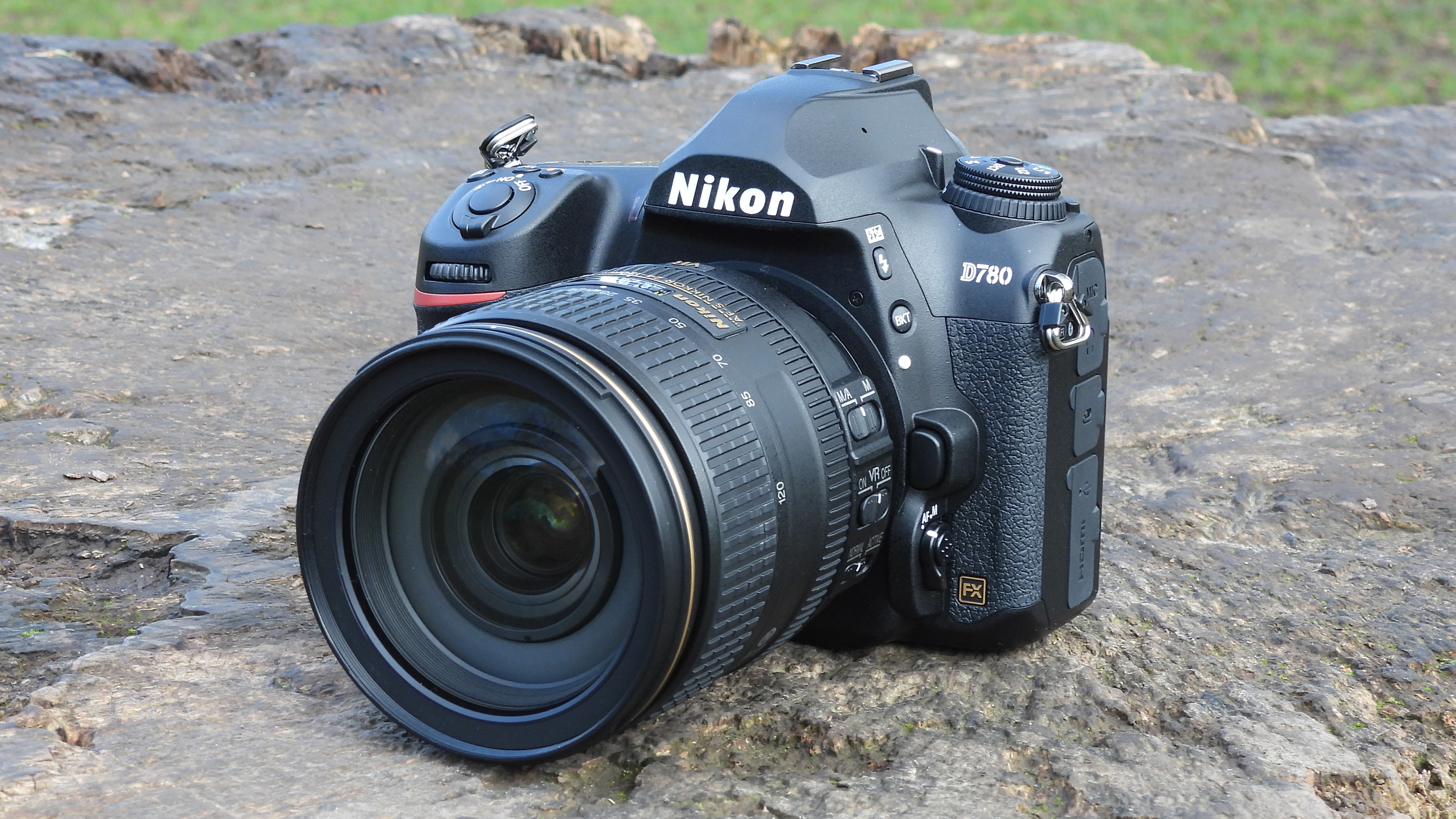
The D780 is effectively a hybrid of a full-frame DSLR and a mirrorless camera like the original Nikon Z6. And while information technology's still relatively expensive, the D780'due south slight cost drib since information technology landed in 2020 means it'south now our top pick for anyone who wants to combine the benefits of mirrorless tech and DSLRs.
Building on the solid foundation of the D750, which volition remain on sale (see no.8), the D780 has the same 273-signal on-fleck stage-detection autofocus system as the Z6, merely also brings an impressive two,260-shot battery life, if you lot prefer to shoot through its optical viewfinder.
Image quality is amongst the all-time around, while its 4K video skills are boosted by the inclusion of modernistic features similar Face and Eye detection. As a relatively new DSLR, it's still quite pricey, but if that isn't an issue for you, and then it's i of the best total-frame all-rounders you lot can buy.
- Read our in-depth Nikon D780 review

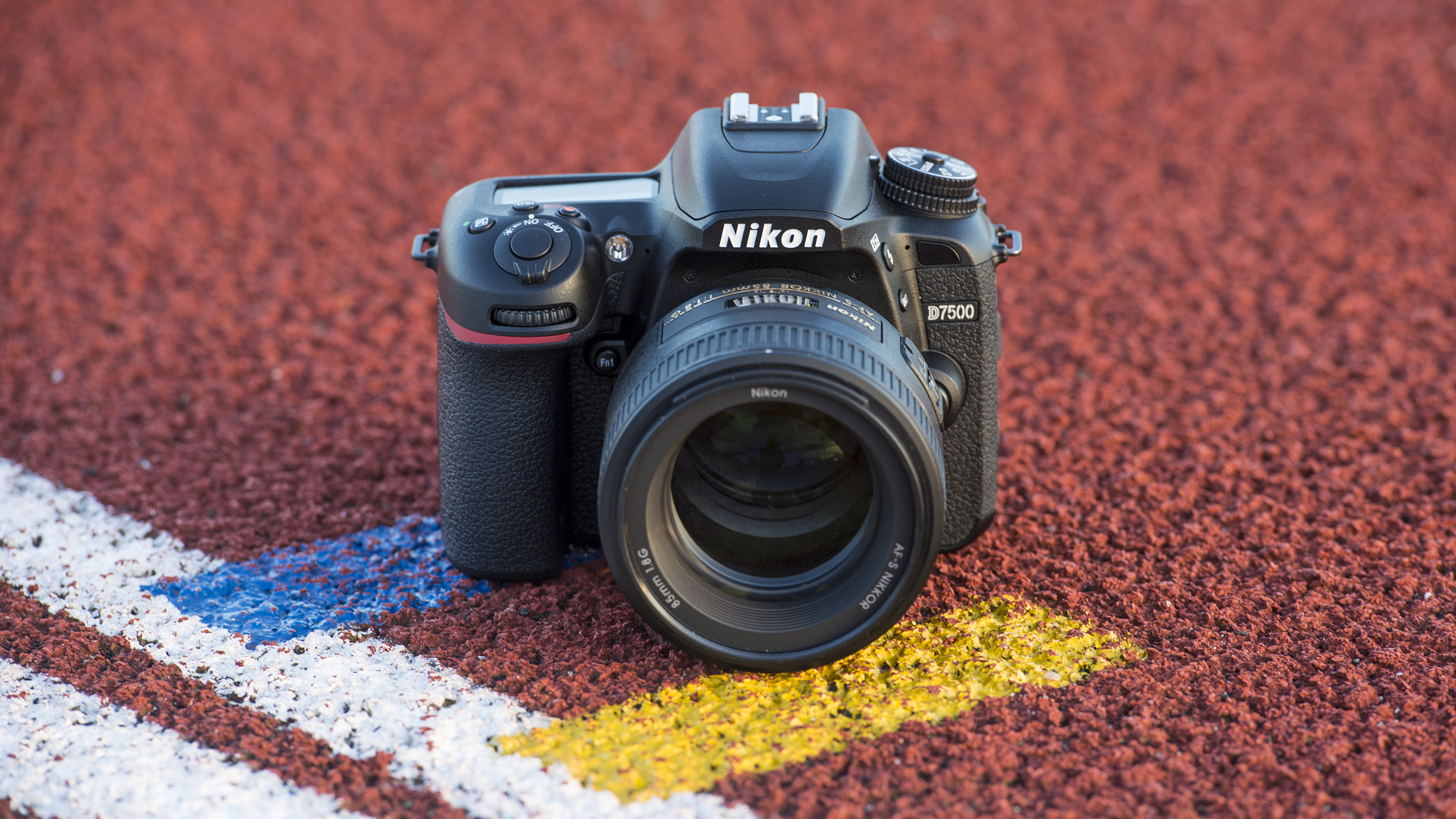
Fancy the Nikon D500 merely don't fancy the toll tag? Well, if yous're prepared to make a few compromises here and at that place, the D7500 is what you should be looking at. Information technology'south packed with the same twenty.9MP sensor equally its more senior stablemate, and also matches it in offering 4K video recording.
Nikon has besides furnished it with the aforementioned 180k-pixel RGB metering sensor and the tilting screen on the dorsum is just as large at 3.2 inches in size, although not quite every bit detailed, and it's all wrapped up inside a weather-sealed torso.
On an even tighter upkeep? There's also the older 24.2MP Nikon D7200, which continues to offer peachy value – if you can find it on sale.
- Read our in-depth Nikon D7500 review

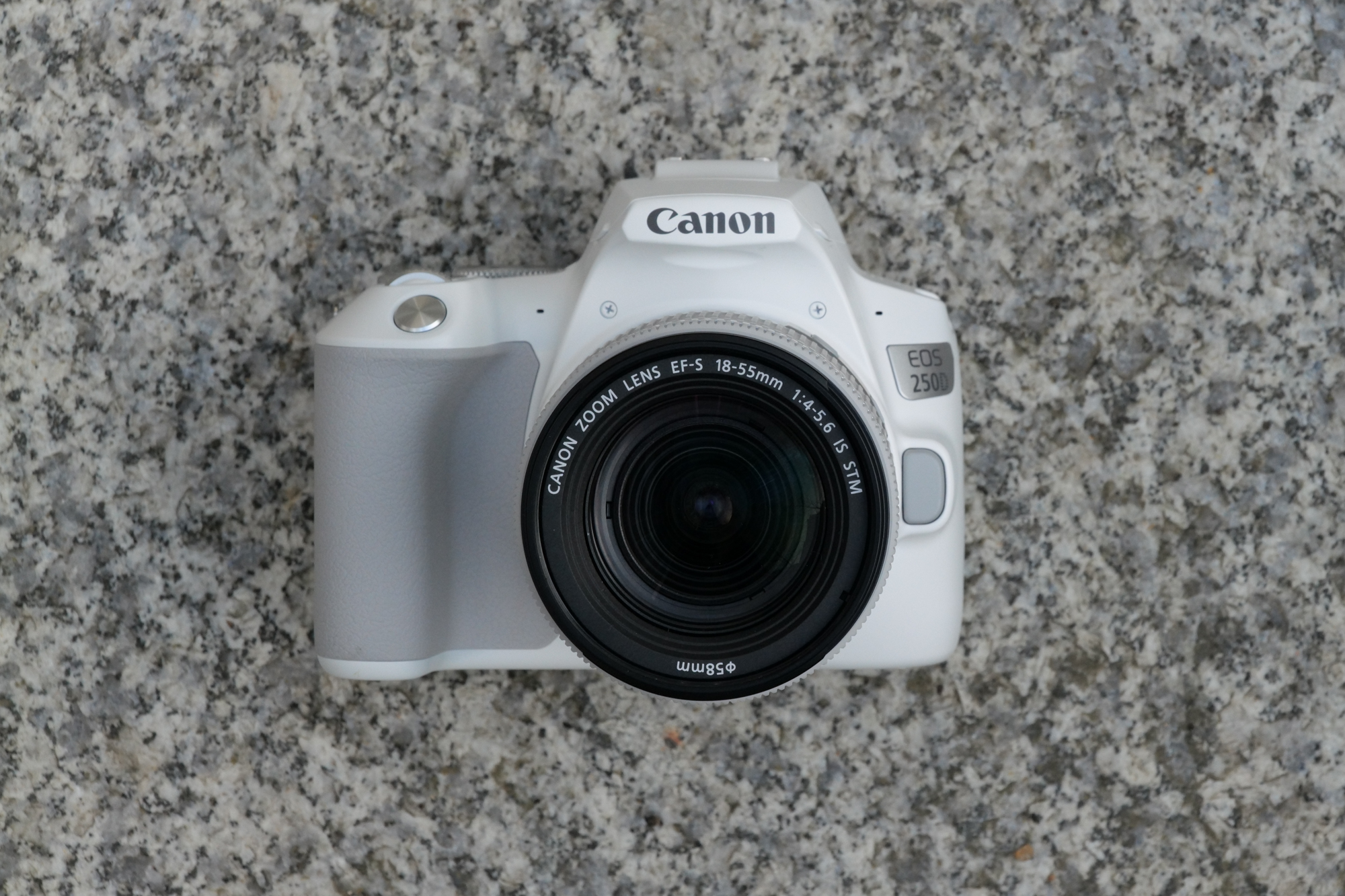
Catechism'due south all-time budget DSLR, the Insubordinate SL3 – also known every bit the EOS 250D outside the Usa – mixes a stiff characteristic set with great handling, despite its minor size. The Nikon D3500 (see no.1) is even smaller still, merely lacks this photographic camera's flip-out LCD screen, which is particularly handy if you lot want to shoot video.
The Rebel SL3 besides adds 4K shooting to its now discontinued predecessor, although this is cropped and rolling shutter is often noticeable. Still, it does offer pleasing JPEGs, a superb 1,070-shot battery life and compatibility with a huge range of EF lenses and other accessories that most mirrorless cameras lack.
If those features are top of your camera wishlist, then this beginner-friendly DSLR remains a compelling choice.
- Read our in-depth Canon EOS Rebel SL3 / EOS 250D review

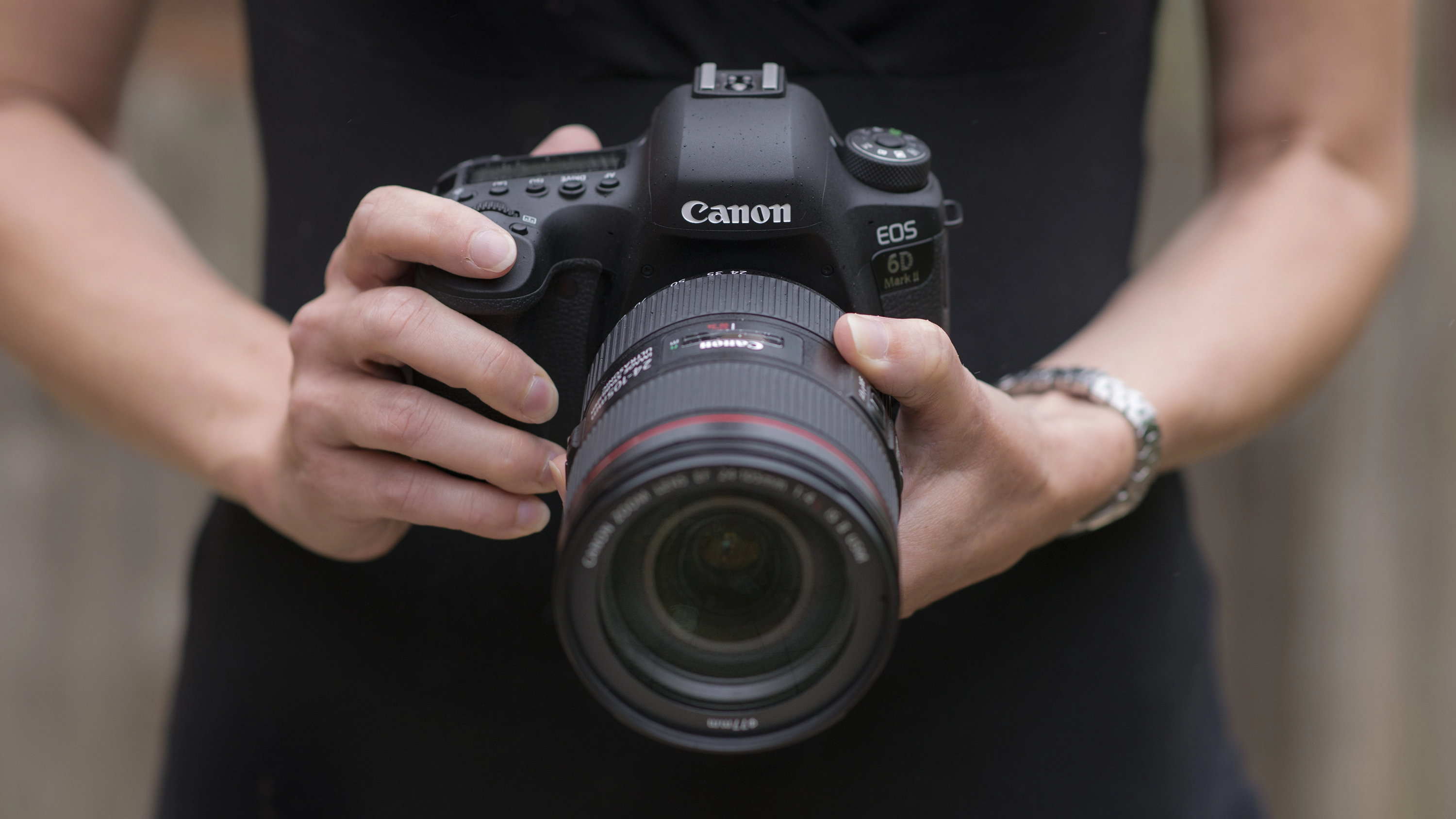
Although it's a total-frame DSLR, the entry-level EOS 6D Mark 2 is impressively convenient. While the chassis can feel rather plasticky, the 26MP sensor housed within is stellar, and offers Canon'due south trusty Dual Pixel CMOS AF organisation when using live view fashion.
With 45 AF points to choose from and a outburst speed of 6.5fps, there'southward enough you can capture – including some decent wildlife shots equally well. Information technology's non quite fast enough for speedy trackside racing shots, but it does surprisingly well for well-nigh annihilation else.
The rear touchscreen also offers tap-to-focus and tap-to-shoot for anyone missing a joystick, but despite that the 6D Mark II is reliable, produces great results and is still a favorite amongst enthusiast photographers.
- Read our in-depth Canon EOS 6D Marking Ii review

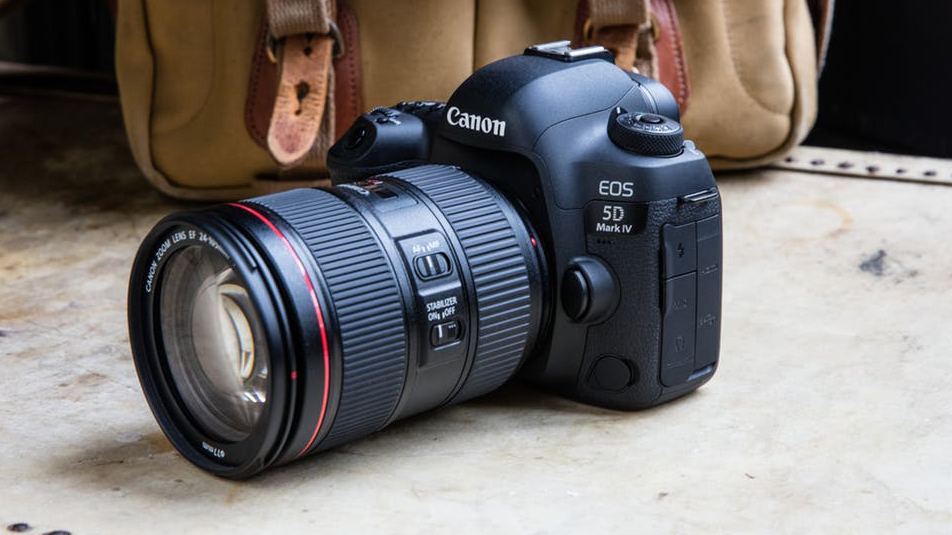
Canon's EOS 5D serial of cameras has a rich heritage – the original EOS 5D brought total-frame photography to the masses, the Marker Two unleashed Full HD video capture for the first time on a DSLR, and the Marker Three became a firm favorite among photographers for doing everything it did and so well.
The EOS 5D Marker Iv pretty much tweaks and improves on everything before it, with a 30.4MP sensor and advanced 61-signal AF system forth with 4K video recording. And with a 5D Mark V successor looking increasingly unlikely, information technology volition continue to be one of the near compelling DSLRs at this price signal.
Naturally, those 4K video options are a little limited, with the frame-rate topping out at 30fps and no options to shoot in a flat gamma contour. Simply if you're mainly looking for a powerful DSLR for stills photography, the EOS 5D Mark IV remains a surprisingly modern proposition, because its age – and the fact that you can nevertheless buy it new is a attestation to its popularity.
- Read our in-depth Catechism EOS 5D Marker IV review

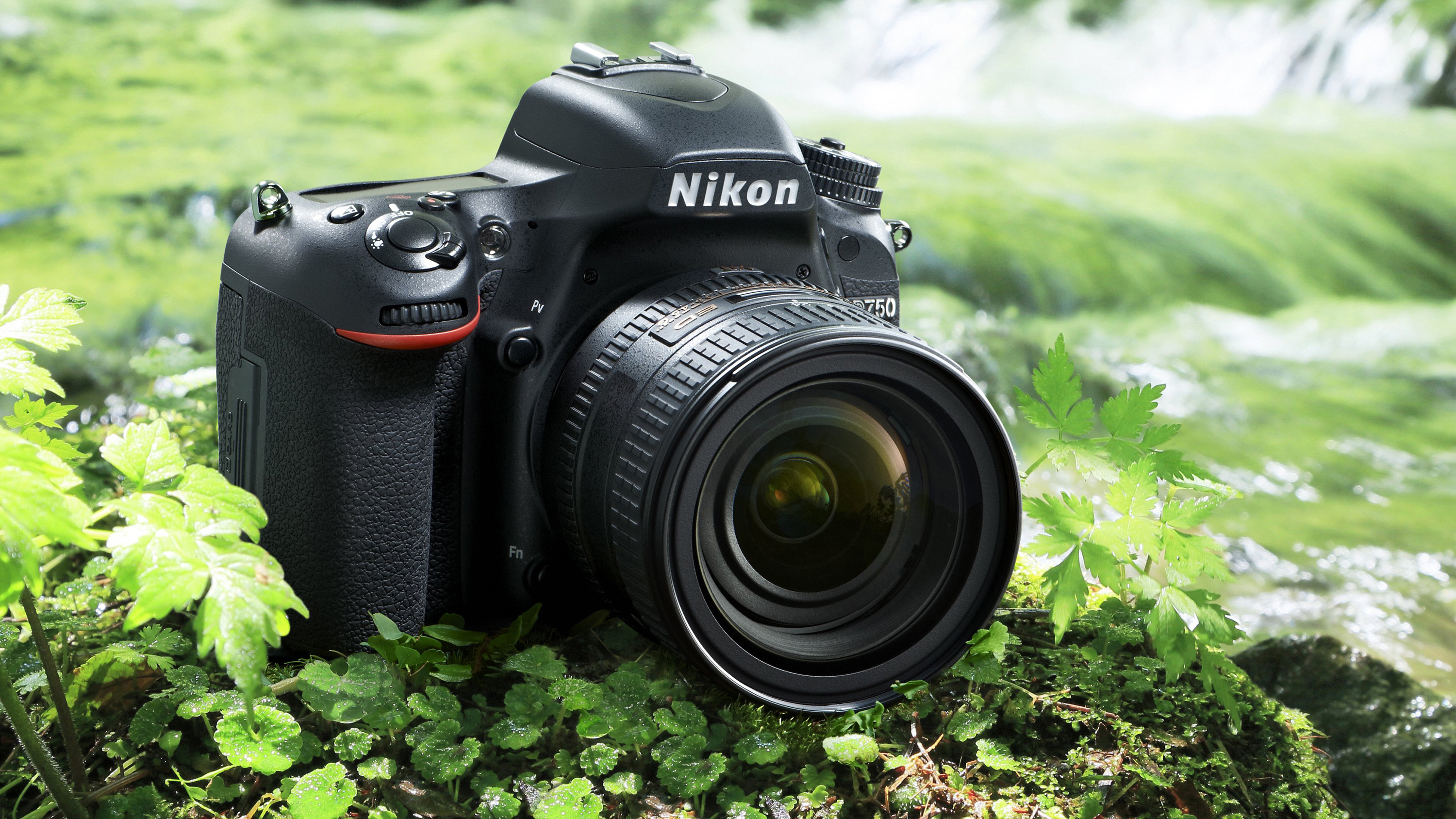
With the recent launch of the Nikon D780 (in a higher place), should full-frame fans notwithstanding consider the D750? The answer is yes, because the D780 isn't a replacement for this camera, more than a pricier culling for those who want the latest mirrorless tricks in DSLR class.
If you're looking for a skilful value full-frame DSLR that'south well-nigh half the cost, then this 24MP model remains a dandy choice. That sensor still produces top-quality results, particularly at high ISO settings, and yous also get a very decent 6.5fps continuous shooting speed, together with a handy tilting screen.
As information technology's an older model, there'south no 4K video or a touchscreen, simply if you don't need these, and then the D750 offers very good value that lets you put extra money towards a lens or two.
- Read our in-depth Nikon D750 review

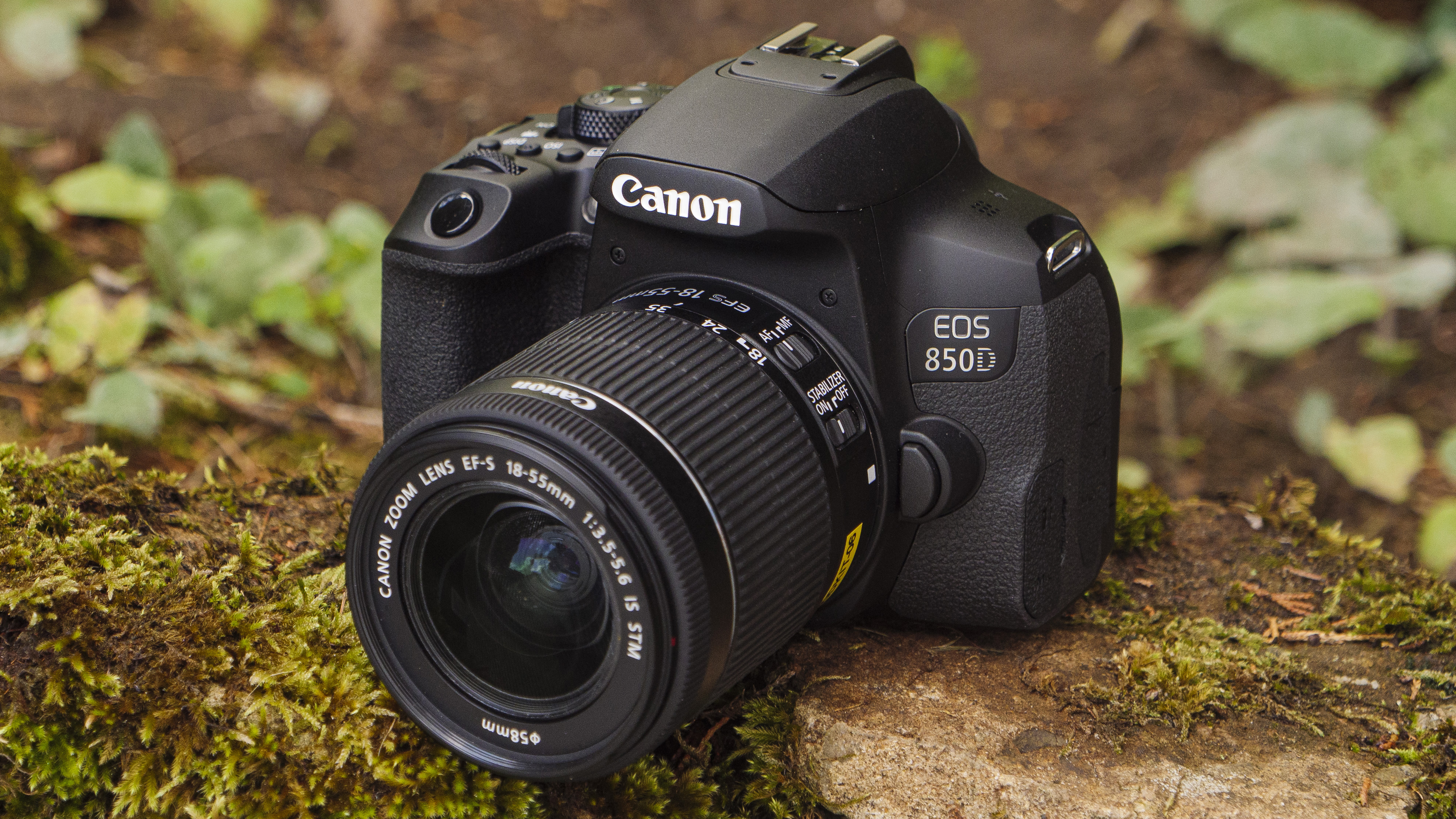
The Canon EOS Insubordinate T8i (know every bit the EOS 850D outside the US) is the successor to i of our favorite DSLRs for beginners. And while it's not a radical leap forward from the Insubordinate T7i / EOS 800D, a camera that'southward now hard to observe, it does offer a near-identical shooting experience that's built effectually Canon's splendid Dual Pixel phase-detection AF system.
The versatile, vari-angle LCD screen and comfortably familiar button layout arrive a breeze to shoot with, and you lot also get 800 shots per charge when shooting with the viewfinder. The only real downside is that the 4K video mode still involves a crop and the loss of phase-detection autofocus, which means this is still very much a camera for 1080p video.
If you don't mind that and adopt the advantages of DSLRs, including battery life and handling, then the Insubordinate Ti / EOS 850D is a fine selection to kick off your photography hobby.
- Read our in-depth Canon EOS Rebel T8i / EOS 850D review

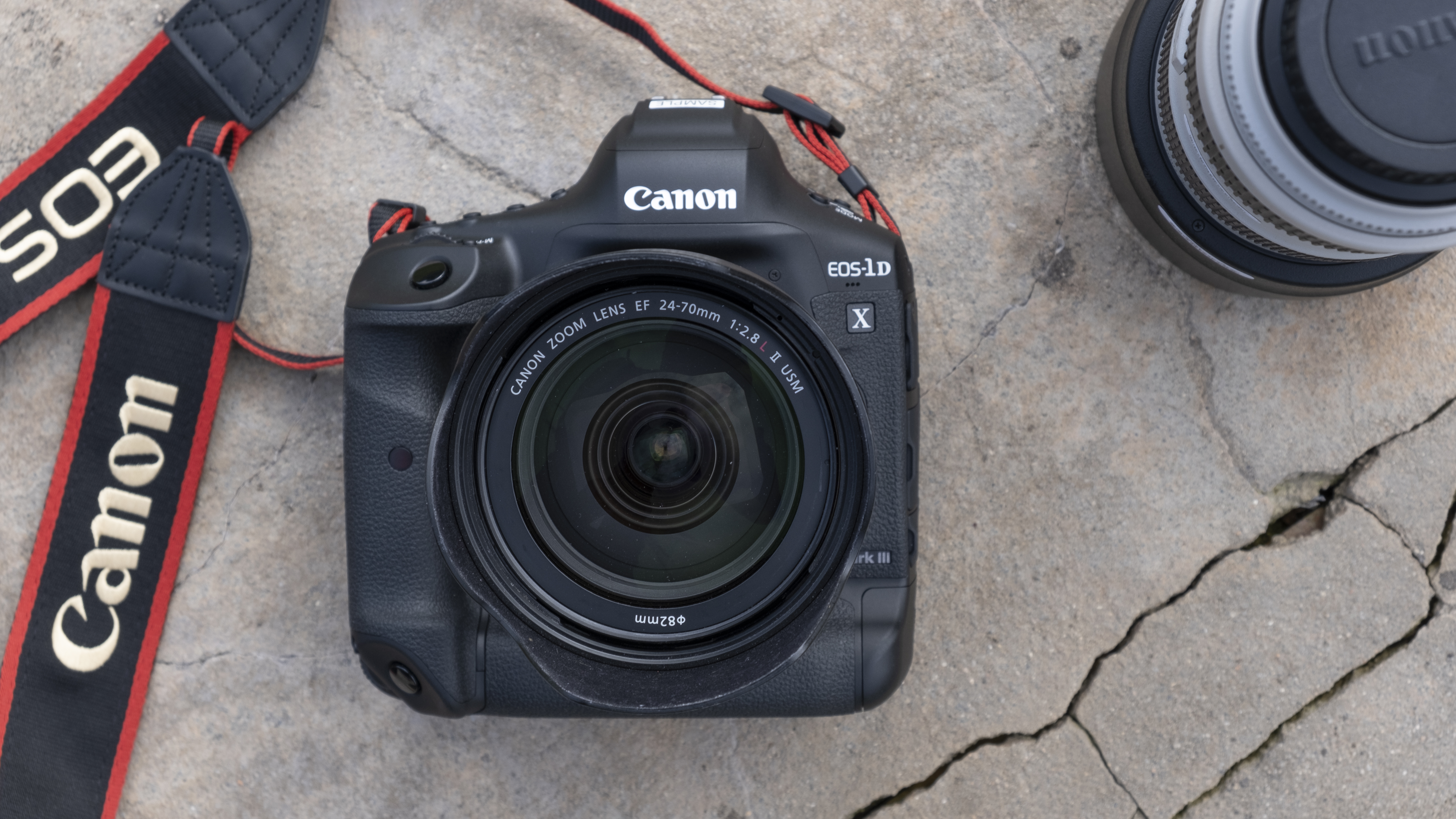
If we're talking about the all-time DSLRs, then it'due south hard to walk past Canon'southward latest and greatest – the EOS 1D X Marking Iii. Designed specifically for the pros who need speed, operation and quality together in one great parcel, the 1D X Marker III pretty much covers all it all. It can easily handle any situation you want, whether in the sports arena, shooting wildlife or for a photojournalist in a war zone.
A rugged body, blitzing 20fps burst speed, and AF organization that can rival Sony's and image quality that really doesn't demand a lot of postal service-production editing. And if you thought it was meant only for stills, call back again. Its video prowess is handy too, with 4K/60p capture available on board. The only downside? It'southward expensive (and possibly overkill) for the boilerplate photographer, but a worthy investment for a professional person.
- Read our in-depth Canon EOS 1D X Mark 3 review

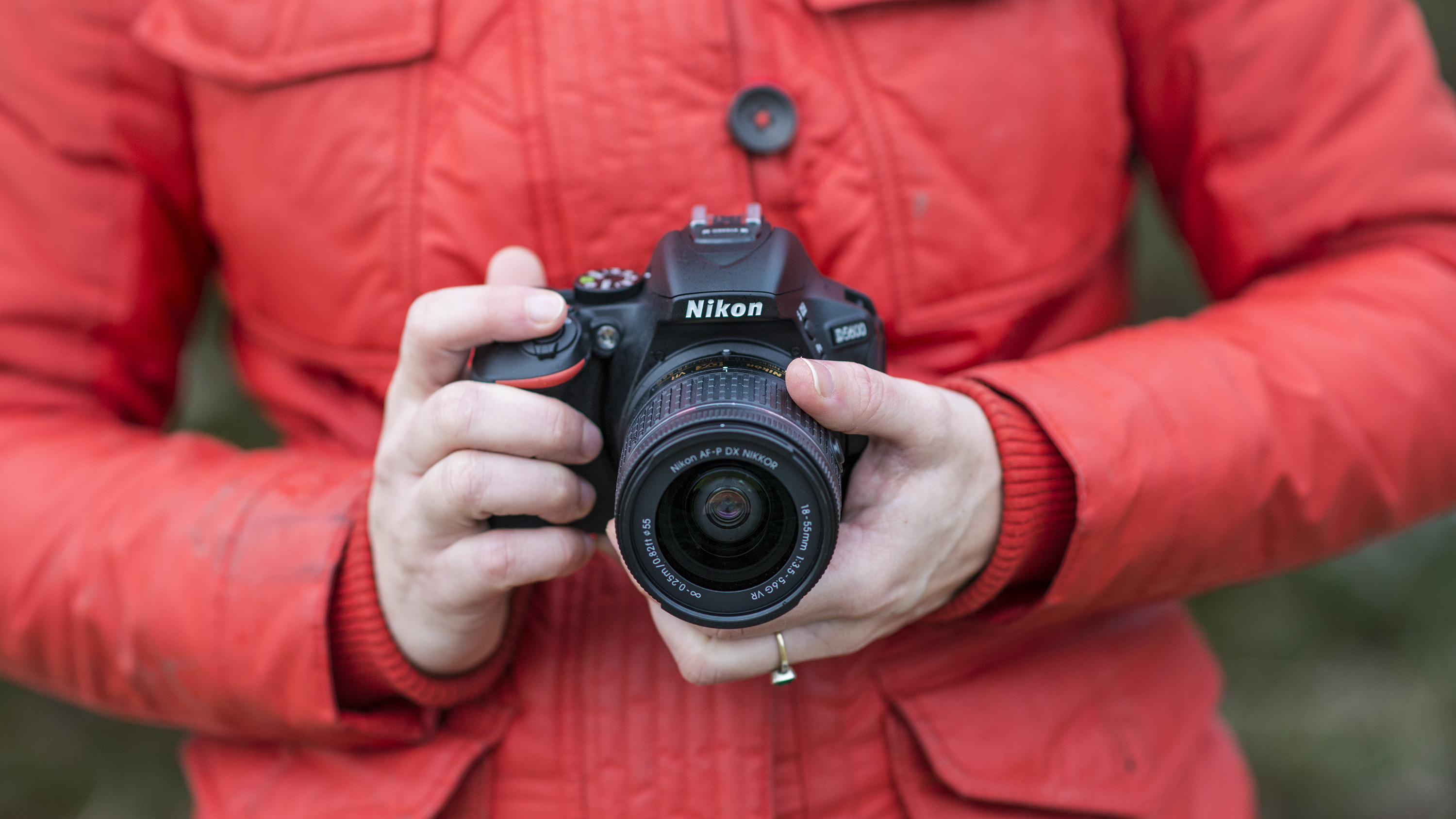
Launched in 2018, the well-equipped Nikon D5600 remains an appealing mid-range package for both beginners and more than experienced users. It might lack a stand-out skill, but its combination of a 24.2MP sensor, an articulating touchscreen, a decent 39-betoken AF organisation and neat proportions mean it'due south notwithstanding well worth a look.
The D5600's polycarbonate vanquish fits nicely in the manus and is comfortable to grip, while the streamlined button layout proves uncluttered and easy to use. The articulating touchscreen is less effective for autofocus control, but movie to the viewfinder and y'all'll notice the AF system solid, fast and authentic.
With the aforementioned sensor as the D5500 earlier it, images are reliably fantabulous. The high resolution offers enough of detail, while images captured at lower ISO sensitive are clean, with piffling noise – and it's merely at ISO6400 that quality starts to suffer. Dynamic range is also impressive, aided by a matrix system that copes well with a range of lighting situations.
And while 5fps burst shooting isn't as fast as mirrorless rivals, an 820-shot battery life towers over most. So, while no unmarried feature of the D5600 will blow you away, it'southward all the same a solid all-rounder that's more affordable than ever.
- Read our in-depth Nikon D5600 review

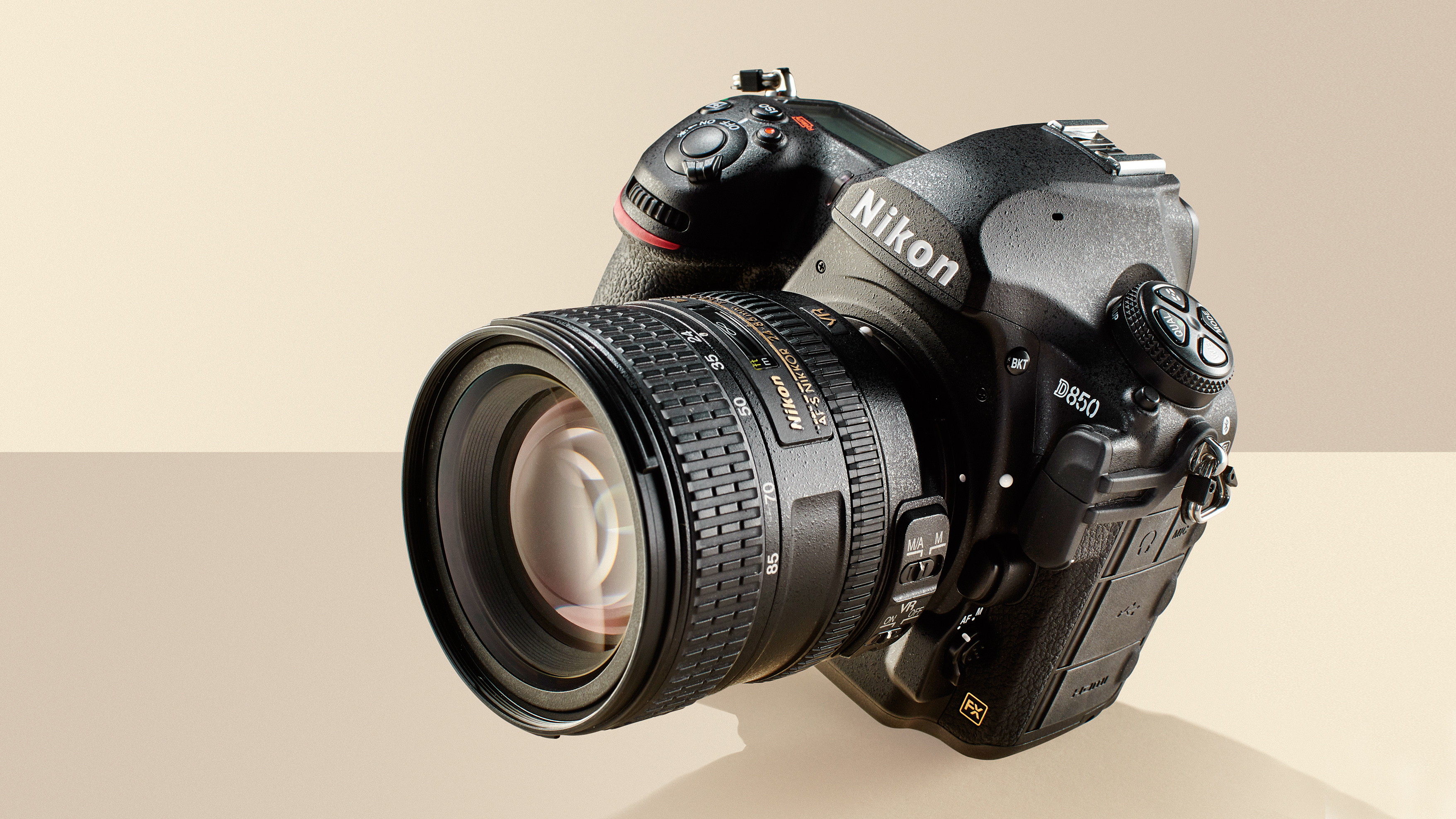
Information technology's hard to think of another DSLR that wows like the D850 does, even later on several years on the market. Information technology's on the pricey side for sure, but this is justified past fantabulous epitome quality, bags of features and a rugged, weather-resistant magnesium alloy body. The 45MP sensor is notwithstanding one of the highest in terms of resolution in any DSLR, while the 7fps burst mode is unusually high for a camera with such a sensor.
Add to that a not bad AF system, wonderful treatment and great 4K video, and its versatility should be piece of cake to appreciate. Similar the sound of the D850, but want to go mirrorless? Well, while not strictly a mirrorless version of the D850, Nikon's newer Z7 mirrorless camera shares the same 45MP resolution as the D850, but features some clever tech of its ain, including an all-new lens mountain.
- Read our in-depth Nikon D850 review

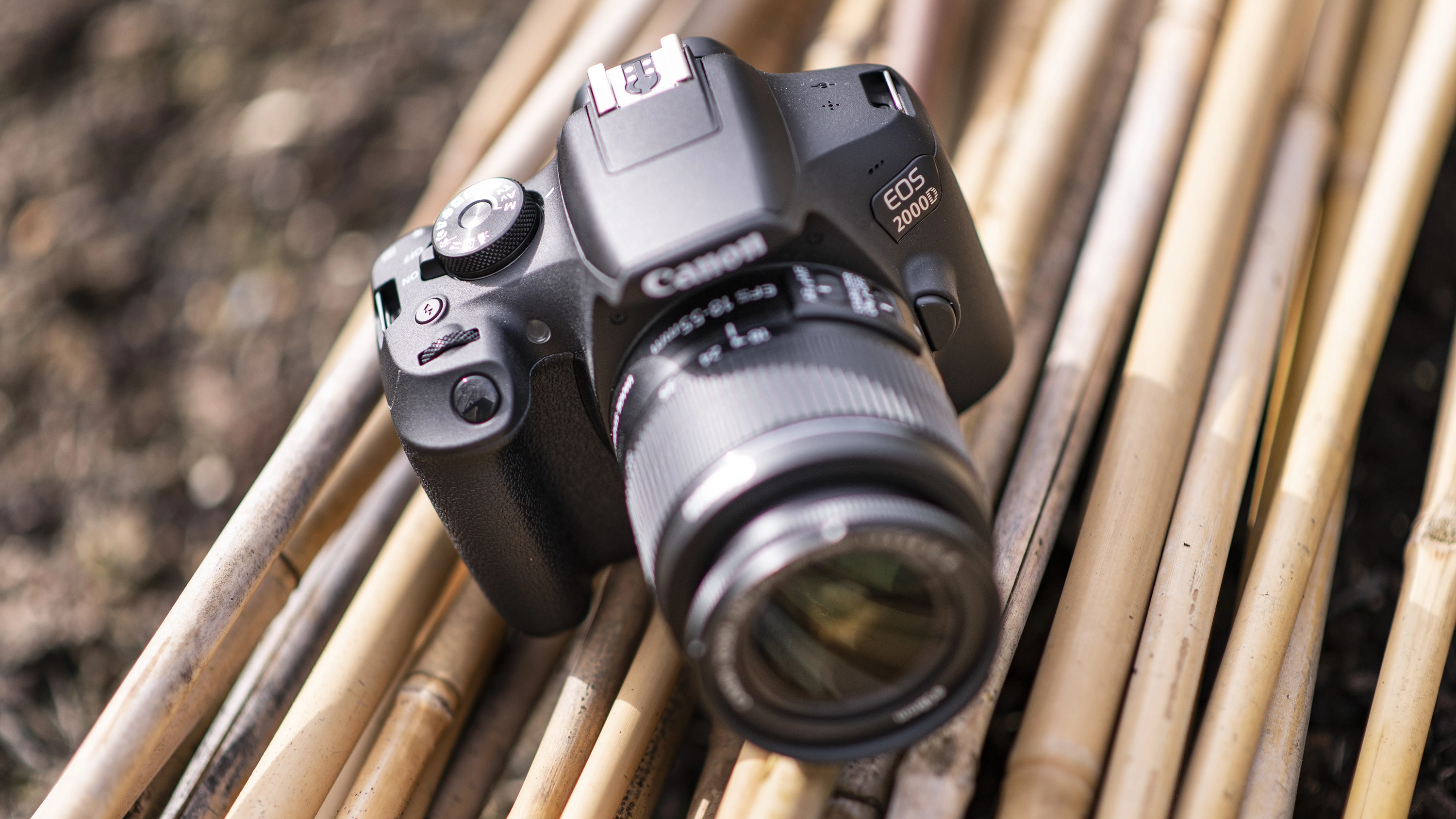
If you're buying your starting time DSLR photographic camera on a tight budget, a simpler, slightly older model is the fashion to go. Catechism'due south entry-level EOS Rebel T7 (known as the 2000D outside the Us) fits that nib: the specs won't blow anyone away, but it'southward easy to use, gets the nuts right and, because it's a few years one-time, offers fantastic value.
There are several compromises, of grade. Burst shooting is limited to a lazy 3fps and the dated autofocus organisation features just ix points. Live View focusing is sluggish and y'all'll need to look elsewhere if you want a touchscreen. And, as you'd expect, the plasticky vanquish does not feel premium.
Only there are good points for beginners, too. The control layout is logical and piece of cake to use, and battery life is solid. In that location's video recording likewise, albeit limited to 1080p. More chiefly, the 24.1MP sensor produces images with a proficient level of detail and decent dynamic range, while noise-treatment performance is solid.
If you're looking to purchase a proficient DSLR on a shoestring, the EOS Rebel T7 / 2000D is well worth considering.
- Read our in-depth Canon EOS Insubordinate T7 / 2000D review

Alternatively: second-mitt classics
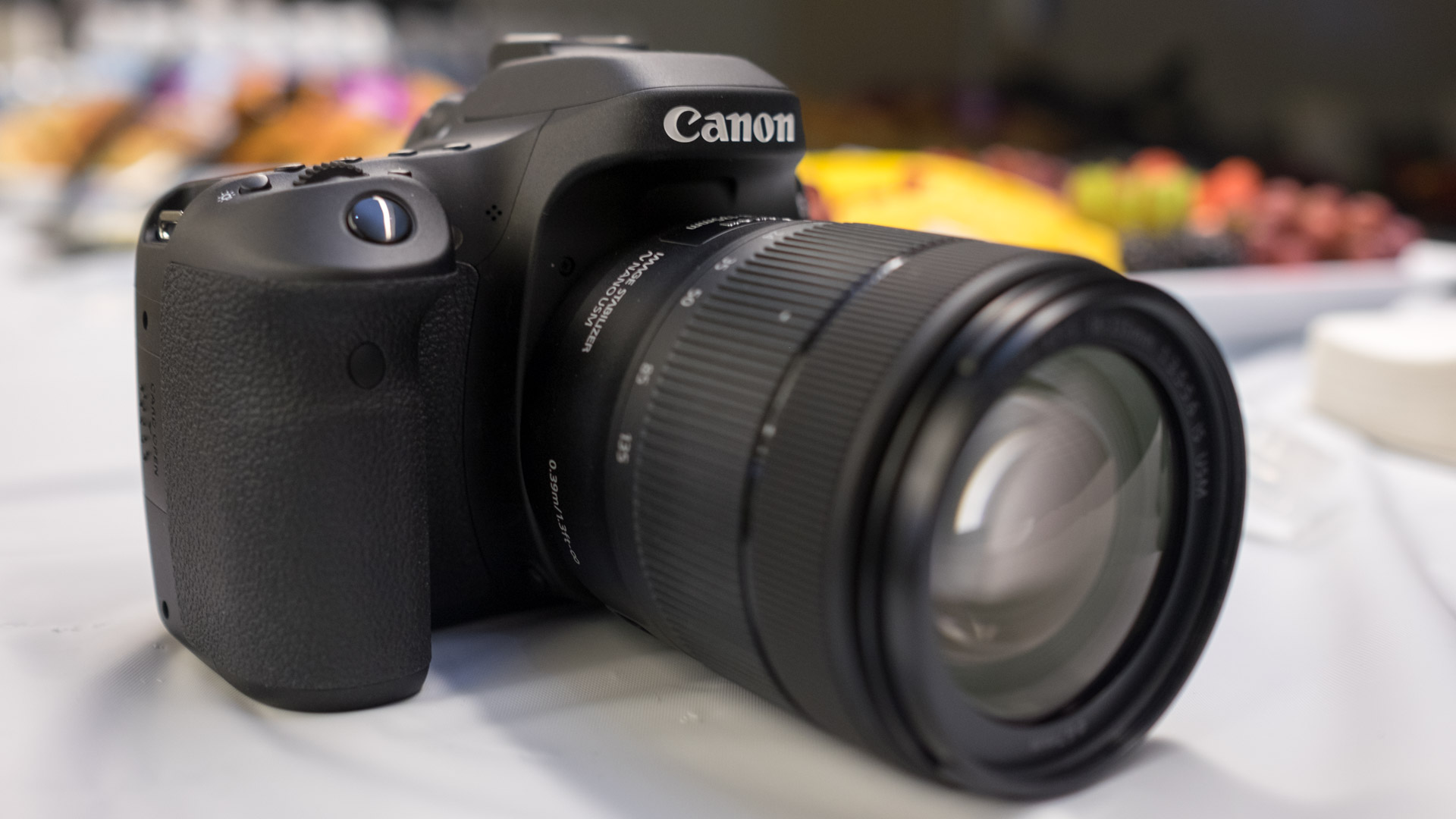
The more recent Canon EOS 90D (see no.two above) is undoubtedly the ameliorate and more than modern DSLR. Only if you're looking for a mid-range pick on a upkeep and so it'southward EOS 80D predecessor is worth keeping an eye out for. This 2016 model is tricky to find new now, but if you notice a restored or second-hand model, y'all'll exist rewarded with impressive quality from the 24.2MP sensor, which is ably backed upwardly by a 45-point autofocus system. The latter is past no means cutting-edge, simply it'll ensure that yous generally go hits and can focus reliably in almost situations. Throw in a guided bill of fare system, and you accept a good option for beginners looking for a camera they tin can grow into. A word of warning though: the 80D'south kit lens is a trivial soft in the corners, so we'd aim to buy information technology torso-only and selection up a zoom lens separately.
- Read our in-depth Canon EOS 80D review

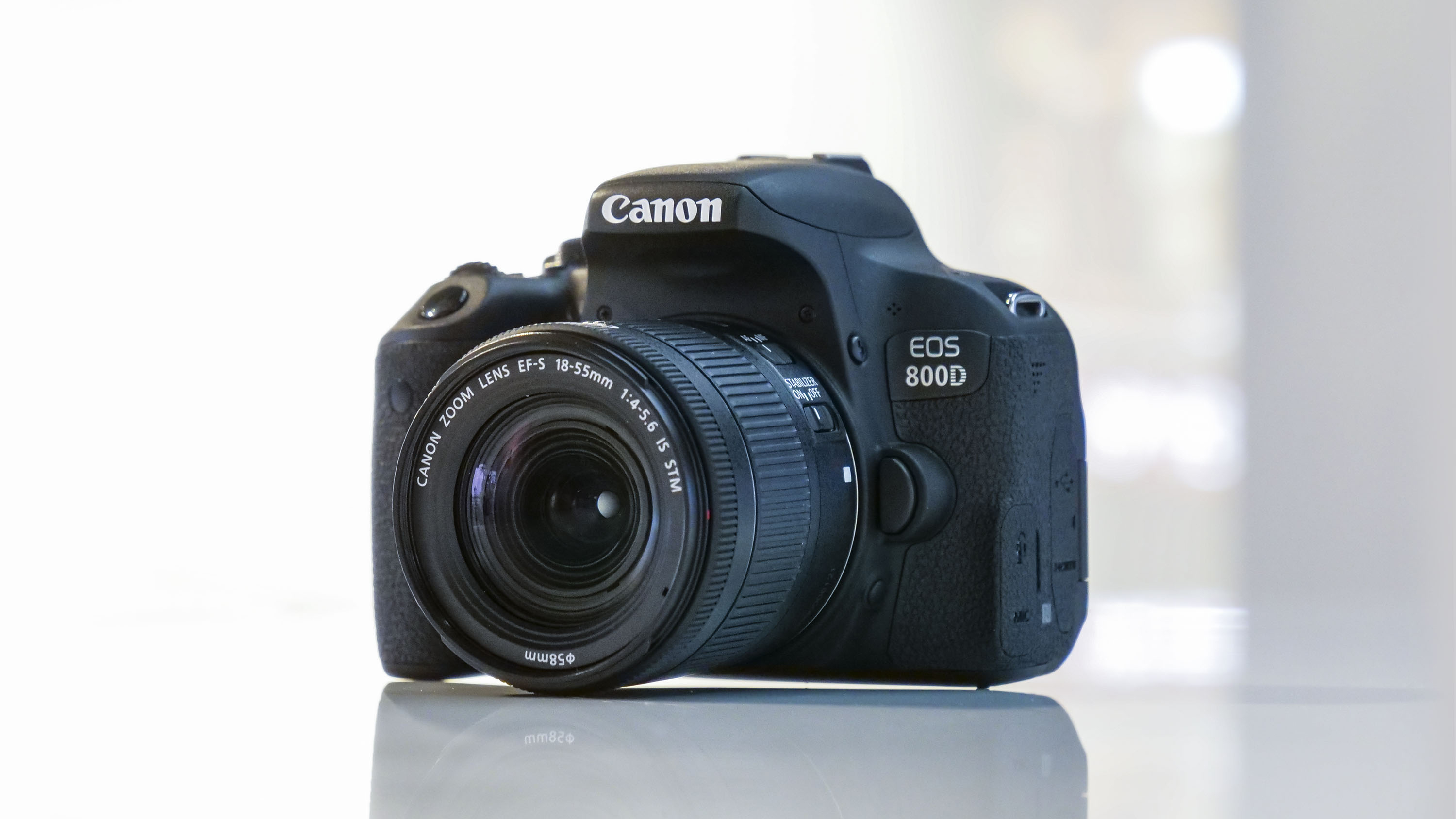
Information technology might be over four years old, merely Canon's entry-level Rebel T7i (or EOS 800D exterior the US) is still a very solid option for beginners. Some of its specs look a little dated next to the latest mirrorless options, such as 6fps burst shooting and video that maxes out at 1080p, but the Insubordinate T7i even so offers plenty for photographers who are keen to get to grips with the heft and handling of a DSLR.
Its plastic terminate definitely feels entry-level, but the Rebel T7i is solidly built with a nice, deep handgrip. It likewise serves upwards a user-friendly interface and excellent touchscreen command that make it a handy for experimenting with manual modes. Dual Pixel autofocus is as well a highlight, performing reliably for Live View photography, while prototype quality overall is impressive – even if dynamic range could be better.
Add together stellar battery life to the mix and the Rebel T7i shapes upwards equally a stellar starter DSLR for stills shooting. Information technology's also better value than the newer EOS Insubordinate T8i / EOS 850D, which delivers modest upgrades for a not-so-modest toll hike.
- Read our in-depth Canon EOS Rebel T7i / 800D review

What should you look for when buying a new DSLR?
A DSLR remains the cheapest way to get a photographic camera with interchangeable lenses and a viewfinder (you'll notice many entry-level mirrorless cameras don't have viewfinders). But what else should you consider when choosing one?
The main differences between an entry-level DSLR and a more avant-garde one are commonly in the camera's design, sensor and shooting features. Beginner DSLRs like the Nikon D3500 are frequently smaller than their more than premium equivalents, which might exist important to you, though this usually ways a lack of weather-proofing and fewer manual controls.
The size departure is oft also related to sensor size. More affordable DSLRs tend to take APS-C size sensors, while pro-friendly ones like the Nikon D850 are full-frame cameras. There is no outright 'improve' sensor size, with each having their own advantages and drawbacks. To find out more near these, check out our Full-frame cameras: do you lot really need one? feature.
Not sure how to decide between a beginner DSLR and a mid-range model? Paying a bit more for the latter will unremarkably go you increased shooting flexibility, which could see you lot keep the camera for longer and save yous money in the long run. The extra features you tend to go are improved continuous shooting speeds (handy for shooting sport or wildlife), superior high ISO operation (useful in lower lite), and sometimes an extra memory card slot.
If you're just looking to step up from your smartphone or betoken-and-shoot camera, though, then an entry-level DSLR will give yous the epitome quality heave and transmission controls you need to grow into your new hobby. Finally, a quick word of advice if you lot don't take any lenses – buy your new DSLR with a kit lens, as information technology's cheaper to do this than buy them separately.
What is a DSLR camera exactly?
Like nigh modernistic cameras, a DSLR allows you to record still images to a memory card. What makes a DSLR camera different is the way that it directs light to the sensor inside. DSLR stands for digital single-lens reflex camera. Breaking that down, the 'digital' refers to the sensor. This tin be anything from a standard APS-C sensor, all the way through full-frame to the much larger medium format.
'Single-lens' is adequately self-explanatory: it means that DSLR cameras employ one and the same lens to frame, focus and shoot photographs. Almost all cameras exercise this nowadays, but the terminology is a hangover from the days when retro rangefinder and twin-lens-reflex models used multiple lenses to achieve the different functions.
'Reflex' refers to perhaps the most important component of a DSLR camera. It means that a mirror inside the torso directs the light which comes down the lens. When you're framing a shot, this light is sent to the optical viewfinder, giving you a true analogue impression of the scene. Only when y'all printing the shutter button to start an exposure, this mirror volition flip upward. In an counterpart SLR camera, this would expose the moving-picture show inside. In a DSLR, it allows the digital sensor to capture the available calorie-free.
Also the optical viewfinder, another benefit of this reflective organization is that DSLR cameras accept to be larger than their mirrorless equivalents. This might sound like a downside, but it ways DSLR cameras can benefit from famously good ergonomics. DSLR cameras too back up interchangeable lenses, and then y'all can switch to more suitable drinking glass when you need to shoot a different scene – from a prime lens to a zoom lens, for example. And because the format has been effectually for then long, you should accept no problem finding uniform lenses and accessories.
For a more detailed explainer on how DSLRs compare to their mirrorless counterparts, check out our in-depth Mirrorless vs DSLR comparison characteristic.
How we examination cameras
Buying a camera these days is a big investment, and then every camera in this guide has been tested extensively by us. These days, real-earth tests are the almost revealing way to sympathise a camera's performance and character, so we focus heavily on those, along with standardized tests for factors like ISO performance.
To start with, nosotros await at the camera's blueprint, handling and controls to get a sense of what kind of lensman information technology's aimed at and who would nigh enjoy shooting with information technology. When we take information technology out on a shoot, we'll use information technology both handheld and on a tripod to get a sense of where its strengths lie, and test its startup speed.
When it comes to operation, nosotros utilise a formatted UHS-ane card and shoot in both raw and JPEG (if available). For flare-up shooting tests, we dial in our regular test settings (i/250 sec, ISO 200, continuous AF) and shoot a series of frames in front of a stopwatch to run into if it lives up to its claimed speeds. Nosotros'll as well await at how quickly the buffers clears and repeat the exam for both raw and JPEG files.
In diverse lighting conditions, nosotros also test the camera'due south different autofocus modes (including Face up and Eye AF) in single point, area and continuous modes. We also shoot a range of photos of different styles (portrait, landscape, low calorie-free, macro/close-upwards) in raw and JPEG to get a sense of metering and its sensor's ability to handle noise and resolve fine detail.
If the camera'southward raw files are supported by Adobe Photographic camera Raw, we'll also process some test images to see how we can push areas like shadow recovery. And we'll likewise test its ISO functioning across the whole range to get a sense of the levels we'd be happy to push the photographic camera to.
Battery life is tested in a real-world fashion, as we employ the camera over the class of the day with the screen prepare to the default settings. Once the battery has reached zero, we'll then count the number of shots to see how information technology compares to the camera'south CIPA rating. Finally, nosotros test the camera's video skills past shooting some test footage at different frame-rates and resolutions, along with its companion app.
We then take everything nosotros've learned about the camera and factor in its price to get a sense of the value-for-money information technology offers, earlier reaching our final verdict.

- Best cameras for photography
- Best camera for beginners
- Best DSLR
- Best mirrorless photographic camera
- Best 4K camera
- All-time full-frame photographic camera
- Best compact camera
- What camera should I buy?
- Mirrorless vs DSLR: 10 key differences
- Camera rumors

Source: https://www.techradar.com/news/best-dslr
Posted by: morrislikendooked1945.blogspot.com

0 Response to "Is Canon Rebel T7i A Good Camera"
Post a Comment